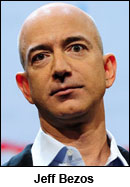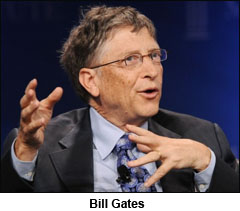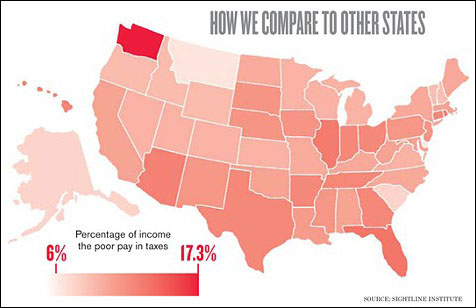OPINION
State must consider income tax through lens of 21st century
By JOHN BURBANK
(May 19, 2017) — One hundred and twenty one years ago, the U.S. Supreme Court ruled that racial segregation was legal. Its decision, in Plessy vs. Ferguson, became the law of the land, embedding Jim Crow laws and habits in the South and the North, disenfranchising blacks, creating separate and inferior public facilities from schools to train cars to water fountains.
That decision held for 60 years. Then, on the winds of a burgeoning civil rights movement and a thirst for justice, the doctrine of “separate but equal” was overturned with Brown vs. Board of Education in 1954. These Supreme Court justices found racial segregation to be illegal and in violation of our basic rights as Americans. And while we still have a long way to go, their opinion opened the door to legal, political, and social progress for blacks and, indeed, for all of us.
What does this have to do with Washington state? The State Supreme Court has found our Legislature in contempt for failure to fully fund the state’s paramount constitutional duty: the education of all children.

 Yet, we live in an incredibly wealthy state, whose residents include the wealthiest person in the world, Bill Gates, Jr., and the fifth wealthiest, Jeff Bezos. In Seattle alone, almost 2,000 people have annual incomes in excess of $1 million. Across the state, you can find 200,000 households with incomes in excess of $200,000. So why isn’t the Legislature amply funding public K-12 education? For the simple reason that, unlike Idaho, Oregon, California, Montana, and Hawaii, we do not have an income tax.
Yet, we live in an incredibly wealthy state, whose residents include the wealthiest person in the world, Bill Gates, Jr., and the fifth wealthiest, Jeff Bezos. In Seattle alone, almost 2,000 people have annual incomes in excess of $1 million. Across the state, you can find 200,000 households with incomes in excess of $200,000. So why isn’t the Legislature amply funding public K-12 education? For the simple reason that, unlike Idaho, Oregon, California, Montana, and Hawaii, we do not have an income tax.
Many very wealthy people living here have benefited greatly from all our state has to offer — and not only can they afford to pay that forward, quite a few of them should want to! This is not an either-or choice. Surely Jeff Bezos, who has enough money to fund his Blue Origin space ship, and Steve Ballmer, with enough to own the L.A. Clippers, can also see the value in great investments like K-12 education and public higher education. That’s how we will help create the next generation of workers, thinkers, discoverers, doers, and entrepreneurs in Washington.
The irony in all this is that former State Supreme Court justices imposed this scarcity of resources for public services when they invalidated a state income tax years ago. The first decision, in 1933, reversed a statewide initiative for a progressive income tax that passed with 70 percent support. The second, in 1935, invalidated a stepped income tax that the Legislature passed in 1935. With these rulings, the State Supreme Court set down the pathway we have followed in our state, to coddle the wealthy and starve public education.
 That decision has left us reliant on regressive sales and property taxes, so that today low-income families contribute 17 percent of their income in state and local taxes, middle-class families contribute over 10 percent, and the most affluent families, with incomes over half a million dollars, contribute just 2.4 percent of their income. Put another way, low-income families work into March to meet their state and local tax contributions, while the wealthy are paid up as of Jan. 6.
That decision has left us reliant on regressive sales and property taxes, so that today low-income families contribute 17 percent of their income in state and local taxes, middle-class families contribute over 10 percent, and the most affluent families, with incomes over half a million dollars, contribute just 2.4 percent of their income. Put another way, low-income families work into March to meet their state and local tax contributions, while the wealthy are paid up as of Jan. 6.
But just as Brown vs. Board of Education reversed racial segregation, our State Supreme Court, if given the right case, can review and reverse its decisions. One such case could be a proposed income tax in the city of Seattle. (Full disclosure: I am one of the proponents of this effort.) If the city passes a local income tax, it will undoubtedly be challenged, and the case would likely make its way to the State Supreme Court. There, today’s court can consider its previous rulings and examine them in the lens of the 21st century.
The justices might realize that the court’s previous decisions have established a financial holiday for the wealthy and promoted financial inequity for working-class families. It has created a revenue system that has slowly and surely throttled funding for K-12 education, higher education, public health, and all the personal economic opportunity that grows from these public services.
If Seattle’s proposed income tax ordinance stands up to a court challenge, we will have new revenue for education and housing. We can reduce the city sales tax, fixing our upside-down tax code in which low-income workers pay a rate seven times higher than the richest households. And we’ll make it possible for other cities in Washington to follow, and provide the public services we all need for shared prosperity.

John Burbank is the executive director and founder of the Economic Opportunity Institute in Seattle. John can be reached at john@eoionline.org.





